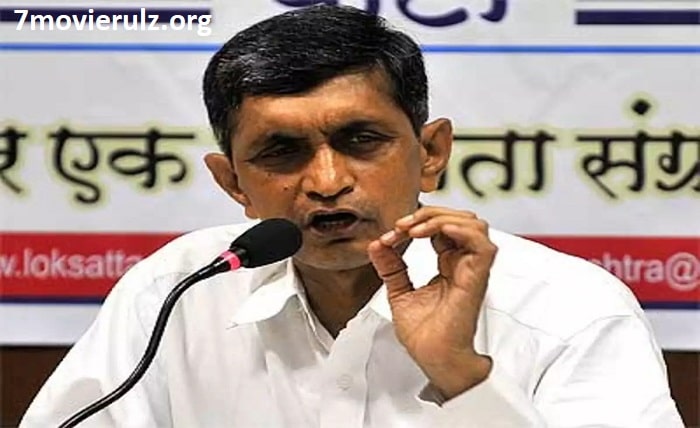Lok Satta, which started as a people’s movement and evolved into a political party, has been a catalyst for substantial change in Indian governance. Founded by Dr. Jayaprakash Narayan, Lok Satta has focused on comprehensive governance reforms and citizen empowerment. This blog provides an in-depth look at the influence and operations of Lok Satta in the complex landscape of Indian politics.
1. Lok Satta
Lok Satta began as a civil society movement in 1996, led by Dr. Jayaprakash Narayan, a former Indian Administrative Service officer. It transitioned into a political entity, the Lok Satta Party, in 2006, aiming to bridge the gap between electoral politics and civic activism. The party’s core mission has been to usher in credible governance reforms.
2. Philosophical Foundations of Lok Satta
Lok Satta has always been rooted in the philosophy of “Swarajya” (self-governance) and transparency. Its approach is characterized by advocacy for decentralization of power, citizen-centric governance, and eradication of corruption at all levels of government.
3. Key Reforms Advocated by Lok Satta
Lok Satta has been instrumental in advocating several key governance reforms, including the Right to Information Act, electoral reforms, police reforms, and judicial accountability. Each initiative aimed at enhancing the operational efficiency of governance structures and making them more accountable to the public.
4. Lok Satta’s Electoral Journey
The transition from a movement to a political party marked a significant shift for Lok Satta. Despite its limited electoral success, the party has had a profound impact on public policy and political discourse, particularly in its home state of Andhra Pradesh and later in Telangana.
5. Educational and Outreach Programs
Lok Satta has prioritized education and outreach to empower citizens with knowledge about their rights and responsibilities. Through workshops, public meetings, and advocacy campaigns, it has engaged with diverse communities to foster a more informed electorate.
6. Impact on Local Governance
One of Lok Satta’s notable achievements has been its impact on local governance. It has successfully lobbied for greater fiscal and administrative powers to local bodies, promoting decentralization as a means to enhance governance at the grassroots level.
7. Challenges Faced by Lok Satta
Despite its noble goals, Lok Satta has faced significant challenges, including limited political representation, resistance from traditional political entities, and the enormous task of mobilizing grassroots support in a diverse and populous nation like India.
8. Lok Satta’s Influence on National Policies
Lok Satta’s advocacy efforts have reached national platforms, influencing policy formulation and implementation. Its contributions to the debates on corruption, political accountability, and public administration reforms have shaped several important legislations and policies.
9. Future Prospects of Lok Satta
Looking forward, Lok Satta continues to adapt its strategies to remain relevant in the fast-evolving political environment of India. It strives to expand its reach and impact, aiming to play a more significant role in shaping the governance of the country.
10. How to Get Involved with Lok Satta
For those inspired by Lok Satta’s mission, there are various ways to get involved. From volunteering and participating in awareness campaigns to contributing to policy discussions and community programs, there are numerous opportunities for citizens to contribute to and shape the movement’s future.
Conclusion
Lok Satta stands as a beacon of reform in Indian politics, advocating for transparency, accountability, and public participation. While it faces considerable challenges, its commitment to reforming the political landscape continues to inspire many. As it moves forward, Lok Satta’s role in shaping a governance model that is more responsive to the needs of its citizens will be crucial in determining its legacy.
Discover the features, benefits, and plans of globe phone services, offering reliable mobile connectivity for your communication needs.
FAQ
Q1: What does “Lok Satta” mean?
A1: Lok Satta translates to “People’s Power” in Hindi, reflecting the party’s commitment to empowering the average citizen in governance processes.
Q2: Who founded Lok Satta?
A2: Lok Satta was founded by Dr. Jayaprakash Narayan, a former IAS officer who left his administrative career to start the movement.
Q3: How has Lok Satta impacted Indian politics?
A3: Although not successful in terms of electoral seats, Lok Satta has had a significant impact on policy-making and has been a strong advocate for governance reforms across India.
Q4: Can someone outside of India support Lok Satta?
A4: Yes, global supporters can contribute by spreading awareness, donating to the cause, or volunteering for their international advocacy efforts.
Q5: What are some major policies influenced by Lok Satta?
A5: Lok Satta has played a key role in the promotion of the Right to Information Act and reforms in public sector transparency and accountability.





